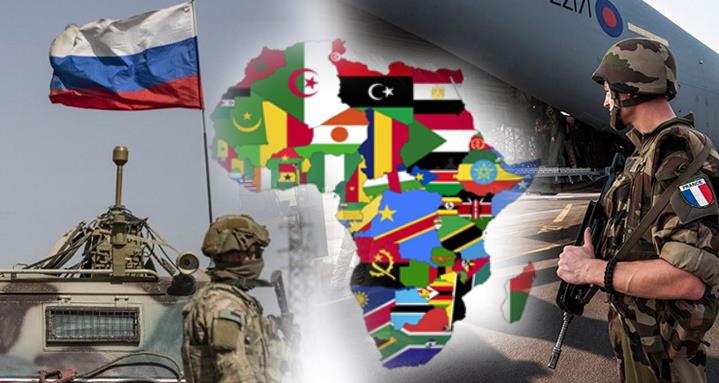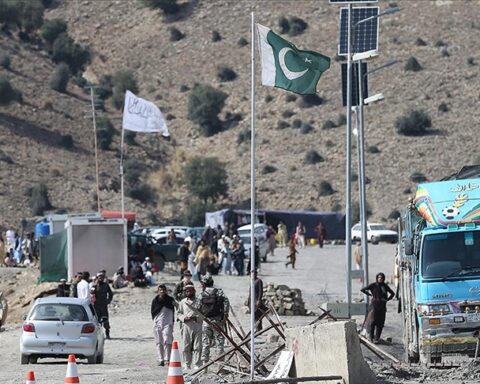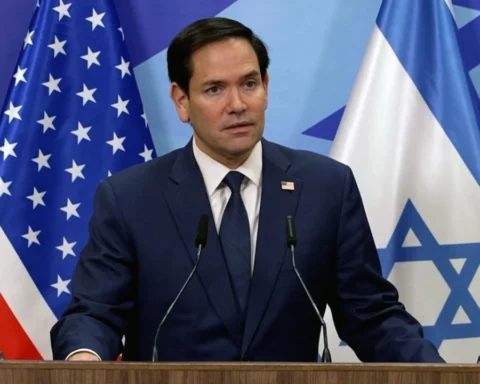Recent instability in Mali is proof that Russia’s paramilitary presence has never had much to offer West and Central African security and development.
Days after the US State Department, along with a slew of Western governments, told its civilians to leave Mali immediately, the Al Qaeda-affiliated jihadist group Jama’at Nusrat al-Islam al-Muslimin (JNIM) rebel group closed in on Mali’s capital of Bamako. On November 5, militants entered Bamako’s suburbs, and government forces are on the brink of collapse.
This outcome resulted from Mali’s junta pursuing a flawed foreign and internal policy, culminating in a doomed counterinsurgency strategy. Alienated from its neighbors with no useful allies after a very public fight with the Economic Community of West African States (ECOWAS), and facing a populace increasingly hostile to the government, the junta is reaping what it sowed. JNIM is advancing more because the junta is unable to inspire loyalty, rather than because JNIM is winning decisive battles.
The common element in these self-destructive policies was a hasty pivot away from the advice and partnerships offered by Western actors and moving towards an uncritical embrace of Russia. These partnerships were often imperfect and rightfully critiqued by local actors, but the junta’s choice of Moscow as a patron ultimately set it up for failure. The fall of Mali isn’t just a tragic story of state failure in the Sahel; rather, it is emblematic of Russia’s shortcomings, priorities, and soft-power deficits. Russia’s model of assistance was tested and found wanting.
While much of the world is treating this as a jarring bolt from the blue, the truth is that regional specialists have long seen the writing on the wall and identified the Russian element as a catalyst for problems. I was by no means alone when I wrote pieces in 2023 and 2024 on this for The National Interest.
Mali’s junta took power in 2020 after a long-expected coup d’état. Longstanding political grievances, COVID-19-related controversies, frustration over how the government was handling an insurgency led by Tuareg nomads in the north, and instability brought by Jihadist groups ultimately resulted in the resignation of the sitting president and the military seizing power.
Unlike the 2012 coup in Mali, which junior officers initiated and quickly transitioned back to civilian rule, the 2020 coup was led by senior officers who, from the start, had the clear backing of Russia. Two of the 2020 coup ringleaders, Malick Diaw and Sadio Camara, had just returned from training in Russia before launching the coup. Russia was the first country to recognize the new government, and the populace and government warmly received Russian support at first.
Even before the coup, there was disenchantment with Western powers. The West wanted to contain Islamic extremism, but there was no political appetite for a large-scale Iraqi or Afghan-style program of state-building supplemented by large occupation forces. Deploying such a force across five countries (Burkina Faso, Chad, Mali, Mauritania, and Niger) in the unforgiving Sahara Desert (an area roughly one-third the size of the continental United States) would be too onerous an undertaking.
Instead, a highly mobile force of mostly French paratroopers and American special operations teams attacked targets with precision. In contrast, larger forces would guard static positions such as towns, economic assets, or military bases, freeing up government forces for combat without worrying about attacks from unexpected directions. It was a tactically sound strategy.
France’s Operation Barkhane, with no more than 6,000 soldiers and only roughly 500 deployed for mobile operations, stabilized the five countries in which it operated for years, while also helping improve security in neighboring states such as Libya, Algeria, Sudan, Nigeria, and the Central African Republic. The problems they were sent to address weren’t permanently solved, and endemic structural issues endured. Still, in terms of running a counterinsurgency with a light footprint, there are few better examples.
However militarily sound such a strategy was, it was a public relations nightmare which Russia easily exploited. The on-the-ground consequences of Western troops defending economic assets were that many Western soldiers clustered around valuable mines, doing little else. To free up local militaries, Western troops ended up sitting tight, defending roads, cities, and other economic assets, while local soldiers did most of the fighting. The image of French troops guarding French mines in former French colonies abroad, while urging locals to make greater sacrifices, was seen as neocolonialism. “France will fight to the last African,” read a poster in the street after Mali’s 2020 coup.
The Western strategy certainly warranted criticism beyond optics. Beyond small training programs aimed at elite formations, few counterinsurgency capabilities were given to local militaries, and not much specialized equipment either. Capacity-building initiatives, such as training bureaucrats or promoting economic reform, were almost non-existent. Financial aid was limited as well. The choices made were understandable, but not ideal. By the time the West recognized its faults, it was too late; Mali had already had its coup, and the regional “coup belt” was lengthening.
Russia’s entry into the region initially provided a new lease on life for many of the embattled governments. Cheap Russian grain entered the area and lowered food prices while Russia introduced mercenaries who were willing to, in the eyes of local governments, “do the dirty business.” The willingness of the Wagner Group, the primary Russian mercenary outfit, to violate the Geneva Conventions to pacify areas under its control produced short-term results while, as is typical in counterinsurgencies, heedless of casualties, it engendered long-term resentment. Even as Wagner cleared areas, it strengthened its enemies.
After the war in Ukraine began, Russia’s tempo of operations intensified in the Sahel, barely affected by Prigozhin’s demise or the subsequent rebranding into the Africa Corps. The Africa Corps had to extract as many fungible and valuable materials as possible as quickly as possible to feed the Russian war machine in a way that sanctions couldn’t stop. Gold, diamonds, ivory, rare earths, and other goods flowed from the region into Russia. This strategy in the Sahel might not have been sustainable, but it was successful in helping Russia when its economy was most vulnerable. As sanctions began to bite during its transition to a wartime economy, these goods were invaluable infusions into a besieged economy.
While Western or Chinese companies might have an uneven relationship with African states that lack leverage, they have a tangible interest in peace, stability, and long-term relations. Russia’s strategy was inherently short-term, extractive, and unsustainable. You don’t need to be a military genius to understand that a strategy of terrorizing and looting locals at the behest of a host government has a limited time horizon.
It is worth noting that China, too, opposed the Russian-backed coup in Mali. China’s long-term programs in Africa, most notably the Belt and Road Initiative, are fundamentally incompatible with Russia’s operational model in Africa. This makes disapproval of Russia’s African policy a rare area of agreement between Beijing and Washington.
The siege of Bamako, then, is not merely the latest episode in the Sahel’s saga of instability. It is the predictable endpoint of a government that mistook defiance for sovereignty and expediency for strategy. By rejecting the flawed but ultimately stabilizing Western or even Chinese partnerships in favor of Russia’s hollow promises of strength, Mali’s junta traded one form of dependency for another, more corrosive one. Russian mercenaries bought the government breathing room while they looted areas under their control and isolated their host governments from their own populations.
Russia’s model of security is one of the losers in this sad story, but the biggest loser is the people of the Sahel. What unfolds in Mali should serve as a cautionary tale: external patrons, whether Western, Chinese, or Russian, cannot substitute for legitimate governance or popular consent. Without these foundations, even the most forceful regimes will, eventually, collapse under the weight of their own illusions. If other Sahel states that are still reliant on Russia do not rapidly pivot in response to these developments, we can expect this tragedy to repeat itself.
* Wesley Alexander Hill is the assistant director of the Energy, Growth, and Security Program at the International Tax and Investment Center. Wesley is an expert on grand strategy, geoeconomics, and international relations with a regional specialization in China, Eurasia, and Sub-Saharan Africa. Prior to his current position, Wesley was a professor at Tulane University and a CLFP fellow at the National Bureau of Asian Research. He began his career as a congressional foreign policy analyst. Wesley has been featured in Al Jazeera, BBC, The Hill, Newsweek, Voice of America, and many other outlets. Wesley is also a regular contributor to Forbes and Newsmax.
Source: https://nationalinterest.org/feature/russias-african-strategy-isnt-working






